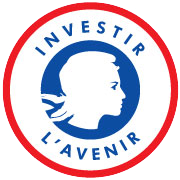░░░▒▒▒▒▒▒▒▒▒▒▒▒▒▒▒▒▒▒▒▒▒▒▒▒▒▒▒▒▒▒▒▒▒▒▓▓▒▓▓▒▒▒▒▒▒▓▒▒▒▒▒▒▒▒▒▒▒▒▒▒▒▒▒▒▒▒▒▒▒▒▒▒▒▒▒▒▒▒▒▒▒▒▒▒▒▒▒▒▒▒▒▒▒▒▒▒▒▒▒▒▒▓▓▒▓▓▓▓▓▓▓▓▓▓▓▓▓▓▓█▓▓█▓▓███▓▓█▓▓▓▒▓▓▒▒▒▒▒▒▒▒▒▓█▓▓▓▓▓▓▓▓▓▓▓▓▓█▓█▓▓▓▓▓██▓▓▓▓███████▓█▓▓▓▓▓▓▓▓▓▓▓▓▓██▓▓██▓▓▓▓▓█▓██▓▓▓▓▓▓▓▓▓▓▓▓▓▓▒▓▓██▓▓▓▒▒▒
░░░▒▒▒▒▒▒▒▒▒▒▒▒▒▒▒▒▒▒▒▒▒▒▒▒▒▒▒▒▒▒▒▒▒▒▓▓▓▓▒▒▒▒▒▒▓█▓▒▒▒▒▒▒▒▒▒▒▒▒▒▒▒▒▒▒▒▒▒▒▒▒▒▒▒▒▒▒▒▒▒▒▒▒▒▒▒▒▒▒▒▒▒▒▒▒▒▒▒▒▒▒▓█▓▓▒▒▒▒▓▓▓█▓▒▓▓▓█▓▓▓▓▓▓▓▓██▓▓▓▓▓▓█▒▒▒▓▓▓▓▓▒▒▒▓▓▓▓▓█▓▓▓▓▓████████▓▓▓▓█▓▓▓██▓▓▓▓▓▓██▓▓▓▓▓▓▓▓▓▓▓▓▓▓▓▓▓▓▓███████▓▓▓▓▓▓▓▓▓▓▓▓▓▓▒▓▓▓█▓▒▒▒▒▒▒▒
░░░▒▒▒▒▒▒▒▒▒▒▒▒▒▒▒▒▒▒▒▒▒▒▒▒▒▒▒▒▒▒▒▒▒▒▒▒▒▒▒▒▒▒▓▓▓▒▒▒▒▒▒▒▒▒▒▒▒▒▒▒▒▒▒▒▒▒▒▒▒▒▒▒▒▒▒▒▒▒▒▒▒▒▒▒▒▒▒▒▒▒▒▒▒▒▒▒▒▒▒▒▒▓▓▓▓▒▓▓▓▒▓▓▓▓▓▓▓▓█▓▓▓█▓▓█▓▓▓▓▓████▓█▓▓▓▒▒▓▓▓▓▓▓▓▓▓██▓▓▓▓▓▓▓███▓▓██▓▓▓▓██████▓▓▓██▓▓▓▓▓▓▓▓▓▓▓▓▓▓▓▓▓▓▓▓▓▓▓▓▓▓▓▓▓▓▓▓▓▓▓▓▓▓▓▓▓▓▓▓▓▓▓▒▒▒▒▒▒▒▒
░░▒▒▒▒▒▒▒▒▒▒▒▒▒▒▒▒▒▒▒▒▒▒▒▒▒▒▒▒▒▒▒▒▒▒▒▒▒▒▒▒▒▒▓▓▒▒▒▒▒▒▒▒▒▒▒▒▒▒▒▒▒▒▒▒▒▒▒▒▒▒▒▒▒▒▒▒▒▒▒▒▒▒▒▒▒▒▒▒▒▒▒▒▒▒▒▒▒▒▒▒▒▒▓▓▓▓▒▓▓▓▓▓▒▓▓▓▓▓██▓▓▓▓▓▓▓█▓█▓▓█▓▓█▓▓▒▒▒▒▒▒▒▒▒▒▒▒▓███▓▓▓▓▓▓▓▓▓▓▓▓▓██▓▓▓▓███████▓▓▓▓▓▓▓▓▓▓▓▓▓▓▓▓▓▓▓▓▓▓▓▓▓▓▓▓▓▓▓▓▓▓▓▓▓▓▓▓▓▓█▓█▓▒▓▓▒▒▒▒▒▒▒▒▒
▒░▒▒▒▒▒▒▒▒▒▒▒▒▒▒▒▒▒▒▒▒▒▒▒▒▒▒▒▒▒▒▒▒▒▒▒▒▒▒▒▒▓██▒▒▒▒▒▒▒▒▒▒▒▒▒▒▒░░▒▒▒▒▒▒▒▒▒▒▒▒▒▒▒▒▒▒▒▒▒▒▒▒▒▓▒░▒▒▒▒▒▒▒▒▒▒▒▒▒▒█▓▓▓▒▓▓▒▓▓▓▓▓▓▓▓▓█▓▓▓▓▓██▒▒▓▓▓█▓▓█▒▒▒▒▒▒▒▒▒▒▒▒▒▒▒█████▓▓▓▓▓▓▓▓▓▓▓▓▓█▓▓██▓▓█▓█▓▓▓▓▓▓▓▓▓▓▓▓▓▓▓▓▓▓▓▓▓▓▓▓▓▓▓▓▓▓▓▓▓▓▓▓▓▓▓█▓▓▓█▓▓█▒█▓▒▒▒▒▒▒▒▒▒
▒▓▒▒▒▒▒▒▒▒▒▒▒▒▒▒▒▒▒▒▒▒▒▒▒▒▒▒▒▒▒▒▒▒▒▒▒▒▒▒▒▒▓█▓▒▒▒▒▒▒▒▒░░░░░░░░░░░▒▒▒▒▒▒▒▒▒▒▒▒▒▒▒▒▒▒▒▒▒▒▒▒▒▒▒▒▒▒▒▒▒▒▒▒▒▒▒▒▓▓▓▒▓▓▓▓█▓▓▒▓▓▓▓▓▓▓▓█▓██▓▒▒▓███▓▒█▓▒▒▒▒▒▒▒▒▒▒▒▒▒▓▓▒▒▓▓▓▓▓▓▓████▓▓▓▓▓▓█▓█▓█▓▓▓█▓▓▓▓▓▓▓▓▓▓▓▓▓▓▓▓▓▓▓▓▓▓▓▓▓▓▓▓▓▓▓▓▓▓▓▓▓▓▓▓▓▓▓▒▓█▓▓▓▒▒▒▒▒▒▒▒▒
░▓▒▒▒▒▒▒▒▒▒▒▒▒▒▒▒▒▒▒▒▒▒▒▒▒▒▒▒▒▒▒▒▒▒▒▒▒▒▒▒▒▒█▒▒▒▒▒▒░░░░░░░░░░░░░░░▒▒▒▒▒▒▒▒▒▒▒▒▒▒▒▒▒▒▒▒▒▒░░▒▒▒▒▒▒▒▒▒▒▒▒▒▒▒▓▓▓▓▓▓▓▓▓▓▓▓▓▓▓▓▓▓█▓▓▓█▓▒▒▒▒▓█▓█▓▓█▓▒▓▒▒▓▓▓▓▓▓▓▓▓█▓▒▓▓▓▓▓▓█▓▓▓███▓▓▓█▓███▓████▓▓▓▓▓▓▓▓▓▓▓▓▓▓▓▓▓▓▓▓▓▓▓▓▓▓▓▓▓▓▓▓▓▓▓▓▓▓▓▓▓▓█▓▒▓█▒▓▓▒▒▒▒▒▓█▓
░▒▒░▒▒▒▒▒▒▒▒▒▒▒▒▒▒▒▒▒▒▒▒▒▒▒▒▒▒▒▒▒▒▒▒▒▒▒▒▒▒▒█▒░░░░░░░░░░░░░░░░░░░░░▒▒▒▒▒▒▒▒▒▒▒▒▒▒▒▒▒▒▒▒▒▒▒░▒▒▒▒▒▒▒▒▒▒▒▒▒▒▒▒▒██▓▓▓▓▓▓▓▓▓▓▓█▓▓▓▒▓▓▒▒▒▒▒▒▓▓▒▓▒█▓▓▓▓▓▓▓█▒▒▒▓▓▒▒▓▓▒▓▓▓▓▓▓▓▓▓▓▓██▓█▓▓▓▓▓▓█▓▓▓█▓▓▓▓▓▓▓▓▓▓▓▓▓▓▓▓▓▓▓▓▓▓▓▓▓▓▓▓▓▓▓▓▓▓▓▓▓▓▓▓▓▓▓▒▒▓▒▒▓▒▒▒▒▒▓▒▒
░░▓▒▒▒▒▒▒▒▒▒▒▒▒▒▒▒▒▒▒▒▒▒▒▒▒▒▒▒▒▒▒▒▒▒▒▒▒▒▒░▓█░░░░░░░░░░░░░░░░░░░░░░░░▒▒▒▒▒▒▒▒▒▒▒▒▒▒▒▒▒▒▒▒▒▒▒▒▒▒▒▒▒▒▒▒▒▒▒▒▒▒▓▓▓▓▓█▓▓▓▓▓▓▓▓█▓▓▓▓▓▓▒▒▒▒▒▒▒▓█▓▒▒▒▒▒▓█▓▓▓▒▒▒▓▒▒▒▓▓▒▓▓▓▓▓▓▓▓▓▓▓███▓▓▓▓▓▓▓█▓▓▓▓██▓█▒▓▓▓▓▓▓▓▓▓▓▓▓▓▓▓▓▓▓▓▓▓▓▓▓▓▓▓▓▓▓▓▓▓▓▓▒▓▒▒▒█▓▓▓▒▓▓▓▓▓▒▓
░░▒▒▓▒▒▒▒▒▒▒▒▒▒▒▒▒▒▒▒▒▒▒▒▒▒▒▒▒▒▒▒▒▒▒▒▒▒▒▒▓▓░░░░░░░░░░░░░░░░░░░░░░░░░▒▒▒▒▒▒▒▒▒▒▒▒▒▒▒░░░░░░▒▒▒▒▒▒▒▒▒▒▒▒▒▒▒▒▒▓▓▓▓▓█▓▓▓▓▓▓▓▓▓▓█▓▒▒▒▒▒▒▒▒▒▒▒▒▒▒▒▒▒▒▒▓▒▓▓▒▒▓▓▒▒▒▓▓▒▓▓▓▓▓▓▓▓▓▓▓█▓▓▓▓▓▓▓▓█▓▒█▓▓▓▓█▓▒▓▓▓▓▓▓▓▓▓▓▓▓▓▓▓▓▓▓▓▓▓▓▓▓▓▓▓▓▓▓▓▓▓▓▓▓▒▒▒▒▓▓▒▒▓█▓█▓▓▓▒
░░░░▒▓▓▒▒▒▒▒▒▒▒▒▒▒▒▒▒▒▒▒▒▒▒▒▒▒▒▒▒▒▒▒▒▒▒▒▓▒░░░░░░░ ░░░░░░░░░░░░░░░░▒▒▒▒▒▒▒▒▒▒▒▒░░░░░░░░▒▒▒▒▒▒▒▒▒▒▒▒▒▒▒▓▓▓▓▓▓▓█▓▓▓▓▓▓▓▓▓▓▓█▓▓▓▒▒▒▒▒▓▓▒▒▒▒▒▒▒▒▒▒▒█▒▒▓▒▒▒▒▒▓▓▒▓▓▓▓▓▓▓▓▓▓▓█▓▓▓▓▓▓▒▓▓▒▒▓▓▒▒▓█▒▒▒▒▓▓▓▓▓▓▓▓▓▓▓▓▓▓▓▓▓▓▓▓▓▓▓▓▓▓▓▓▓▓▓▒▓▓▒▒▒▒▒▒▒▒▒▓█▓▒▒░░
░░░▒▒▒▓▓▓▓▓▒▒▒▓▓▒▒▒▒▒▒▒▒▒▒▒▒▒▒▒▒▒▒▒▒▒▒▒▓▒░░░░ ░░░░░░░░░░░░░▒▒▒▒▒▒▒▒▒▒▒░░░░░░░░░▒▒▒▒▒▒▒▒▒▒▒▒▒▒▒▓▓▓▓▓▓▓█▓▓▓▓▓▓▓▓▓▓▓▓▓▓▓▓▒▒▒▓▓▓▓▓▒▒▒▒▒▒▒▒▓█▓▓▓▓▒▒▒▒▒▓▓▒▓▓▓▓▓▓▓▓▓▓█▓▓▓▓▓▓▓▓▒▒▒▒▓▓▒▓▓▒▒▒▒▒▓▓▓▓▓▓▓▓▓▓▓▓▓▓▓▓▓▓▓▓▓▓▓▓▓▓▓▓▓▓▓▓█▓▒▒▒▒▒▒▒▒▒▒▒▒▒▒▒
░░░▒▒▒▓▓▓▓▓▓▓▓▓▓▓▒▒▒▒▒▒▒▒▒▒▒▒▒▒▒▒▒▒▒▒░▓▒░░░░ ░░░░░░░░░░░░░▒▒▒▒▒▒▒▒▒▒░░░░░░░░░░▒▒▒▒▒▒▒▒▒▒▒▒▒▒▓▓▓▓▓▓█▓▓▓▓▓▓▓▓▓▓▓██▓▓▒▓▓▓▓▓▓▒▒▒▓▓▓▓▓▓▓▓▓█▓▒▓▒▒▓▓▒▒▒▒▓▓▒▓▓▓▓▓▓▓▓▓▓█▓▓▓▓▓▓▓▒▒▒▓▓▒▒▓▓▒▒▒▒▒▓▓▓▓▓▓▓▓▓▓▓▓▓▓▓▓▓▓▓▓▓▓▓▓▓▓▓▓▓▓▓▓▓▓▒▒▒▒▒▒▒▒▒▒▒▒▒▒▒
░░░▒▒▒▒▓▓▓▓▒▒▒▒▒▒▓▒▓▓▒▒▒▒▒▒▓▒▒▓▓▓▓▓▓▒░▓▒░░░ ░░░░░░░░░░░░▒▒▒▒▒▒▒▒▒▒░░░░░░░░░░░░▒▒▒▒▒▒▒▒▒▒▒▒▒▓▓▒▓▓▓▓▓▓▓▓▓▓▓▓▓▓▓█▓▓▓▓▓▒▒▓▓▓▒▒▒▓▒▒▒▒▒▒▓▒▓▓▒▓▒▒▒▒▓▒▒▒▓█▓▓▓▓▓▓▓▓▓▓▓▓▓▓▓█▓▒▒▒▒▒▓▒▒▒▒▓█▓▓▒▒▒▓▓▓▓▓▓▓▓▓▓▓▓▓▓▓▓▒▒▒▒▓▓▓▒▒▒▒▒▓▒▓█▓▒▒▒▒▒▒▒▒▒▒▒▒▒▒▒
░░░▒▒▒▒▒▓▓▓▒▒▒▒▒▒▓▓▓▓▓▒▒▒▓▓▓▓▓▓█▒▒▒▒▒▒▒▒░░░ ░░ ░░░░░░░░░░░▒▒▒▒▒▒▒▒▒▒░░░░░░░░░░░░░▒▒▒▒▒▒▒▒▒▒▒▒▒▓▓▓▓▓▓▓▓▓▓▓▓▓▓▓▓▓▓▓▓▓▓▓▓▓▒▒▒▒▒▒▒▓▓▒▒▒▒▒▓▓▓▓▓▒▒▒▒▒▒▓▓▓█▓▓▓▒▓▓▓▓▓▓▓▓█▓▓▓▓▓▒▒▒▒▓▓▒▒▒▒▒▓▒▓█▓▒▒▒▒▓▒▒▓▓█▓▒▓▓▓▓▓▒▒▒▒▒▒▒▒▒▒▒▒▒▒▒▓█▒▒▒▒▒▒▒▒▒▒▒▒▒▒▒
░░░░▒▒▒▒▓▓▓▓▒▒▒▒▒▒▒▒▒▓▒▒▓▓▒▒▒▒▒▒▒▒▒▒░▓▒▓░░ ░░░ ░░░░░░░░░░░▒▒▒▒▒▒▒▒▒▒▒░░░░░░░░░░░░░▒▒▒▒▒▒▓▓▓▓▓▓▓▓▓▓▒▓▓▓▓▓▓▓▓▓▓▓▓▓▓▓▓▓▓▓▓▓▓▓▒▒▒▒▒▓▓▒▒▒▒▒▒██▓▒▒▒▒▒▒▒▒▓▒▓▓▒▓▓▒▓▓▓▓▓▓▓▓▓▒▓▒▒▒▒▓▓▓▒▒▒▒▒▒▓▓▒▓▓▓▓▓▓▓▓▓▓▓▓██▓▒▓▒▒▒▒▒▒▒▒▒▒▒▒▒▒▒▒▒█▓▒▒▒▒▒▒▒▒▒▒▒▒▒▒▒
░░░░▒▒▒▒▓▓▓▓▓▒▒▒▒▒▒▒▒▓▓▓▓▒▒▒▒▒▒▒▒▒▒▒░▓▒▒░ ░░ ░░░░░░░░░░░▒▒▒▒▒▒▒▒▒▒▒░░░░░░░░░░░░░▒▒▒▒▒▒▒▒▒▒▓▓▓▓▓█▓▓▓▓▓▓▓▓▓▓▓▓▓▓▓▓▓▓▓▓▓▓▓▓▓▒▒▒▒▓▓▒▒▒▒▒▒▓▓▓▒▒▒▒▒▒▒▒▒▒▒▓▓▒▓▓▓▓▓▓▓▓▓▓█▓▒▒▒▒▓▓▒▒▒▒▒▒▒▒▒▒▓▓▓▓▓██▓█▓▒▒▓▓▓▓▒▒▒▒▒▒▒▒▒▒▒▒▒▒▒▒▒▒▓▓▒▒▒▒▒▒▒▒▒▒▒▒▒▒▒▒
░░░░▒▒▒▒▒▓▓▓▓▓▒▒▒▒▒▒▒▒▓▓▓▒▒▒▒▒▒▒▒▒▒▒░▒▓▒▒ ░░░░░░░░░░░▒▒▒▒▒▒▒▒▒▒░░░░░░░░░░░░░░░▒▒▒▒▒▒▒▒▒▒▓▒▓▓▓▓▓▓▓▓▓▓▓▓▓▓▓▓▓▓▓▓▓▓▓▓▓▓▓▓▓▓▓▓▒▓▓▒▒▒▒▒▒▓▓▒▓▒▒▒▒▒▒▒▒▒▒▒▓▓▒▓▓▓█▓▓▓▒▓▓▒▒▒▒▒▓▓▒▒▒▒▒▒▒▒▒▒▒▒▓▓▓██▓▓▒▒▓▓▒▓▓▒▒▒▒▒▒▒▒▒▒▒▒▒▒▒▒▒▓█▒▒▒▒▒▒▒▒▒▒▒▒▒▒▒▒▒
░░░░▒▒▒▒▒▒▓▓▒▓▓▒▒▒▒▒▒▒▒▓▓▒▒▒▒▒▒▒▒▒▒░░░▒▓░ ░░░░░░░░░░░▒▒▒▒▒▒▒▒▒▒░░░░░░░░░░░░░░░▒▒▒▒▒▒▒▒▒▓▒▓▓▓▓▓▓█▓▓▓▓▓▓▓▓▓▓▓▓▓▓▓▓▓▓▓▓▓▓▓▓▓▓▒▓▓▒▓▒▒▒▒▒▓▒▓▓▒▒▒▒▒▒▒▒▒▒▓█▓▒▒▓█▓▓▓▓█▓▓▓▓▓▒▒▓▒▒▒▒▒▒▒▒▒▒▒▒▒▒▒▓▓▓▓▓▒▓▒▒▓▓▒▒▒▒▒▒▒▒▒▒▒▒▒▒▒▒▒▓▓▓▓▒▒▒▒▒▒▒▒▒▒▒▒▒▒▒
░░░▒▒▒▒▒▒▒█▓▒▓▓▒▒▒▒▒▒▒▓▓▒▒▒▒▒▒▒▒▒▒░░░░░░░ ░░░░░░░░░░░▒▒▒▒▒▒▒▒▒░░░░░░░░░░░░░░░░░▒▒▒▒▒▒▒▒▓▓▒▓▓▒▒▒▓▓▓▓▓▓▓▓▓▓▓▓▓▓▓▓▓▓▓▓▓▓▓▓▓▓▓▓▓▓▓▓▓▓▓▒▒▒▓▓▒▓▒▒▒▒▒▒▒▒▒▒▒▓▓▓▓▓▓▓▒▒▓▓▒▒▒▒▓▓▓▓▒▒▒▒▒▒▒▒▒▒▒▒▒▒▒▓▓▒▓▓▓▓▒▓█▒▒▒▒▒▒▒▒▒▒▒▒▒▒▒▒▒▓▓▒█▓▒▒▒▒▒▒▒▒▒▒▒▒▒▒▒
░░░░▒▒▒▒▒▒▒█▓▒▓▓▒▒▒▒▒▒▓▒▒▒▒▒▒▒▒▒▒▒░░▒▒░░░░░ ░░░░░░░░░░░░▒▒▒▒▒▒▒▒▒░░░░░░░░░░░░░░░░░▒▒▒▒▒▒▒▒▓▒▒▓▓▒▓▒▓▓▒▓▓▓▓▓▓▓▓▓▓▓▓▓▓█▓▓▓▓▓▓▓▓▓▓▓▓▓▓▓▓▓▒▒▒▒█▒▒▓▒▒▒▒▒▒▒▒▒▒▒▒▒▒▒▒▓▓▓▒▒▒▒▒▒▒█▓▒▒▒▒▒▒▒▒▒▒▒▒▒▒▒▒▒▓▓█▓▓▒▒▒▓▓▒▒▒▒▒▓▒▒▒▒▒▒▒▒▒▓▓▒▓▓▓▒▒▒▒▒▒▒▒▒▒▒▒▒▒▒
░░░░▒▒▒▒▒▒▒▒▒▒▒▓▒▒▒▒▒▒▓▒▒▒▒▒▒▒▒▒▒░▒▓▓▓▒▒▒░ ░░░░░░░░░░░░░░▒▒▒▒▒░░░░░░░░░░░░░░░░░░░░▒▒▒▒▒▒▒▓▓▒▓▓▒▒▒▒▓▓▓▓▓▓▓▓▓▓▓▓▓▓▓▓▓▓▓▓█▓▓▓▓▓▓▓▓▓▓▓▓▓▓▓▓▓▓▓▓▒▓▒▒▒▒▒▒▒▒▒▒▒▒▒▒▒▒▒▒▓▒▒▒▒▒▒▒▒█▒▒▓▒▒▒▒▒▒▒▒▒▒▒▒▒▓██▓█▓▒▒▒▒▓▒▒▓▓▓▒▓▒▒▒▒▒██▓▒▒▒▓█▒▒▒▒▒▒▒▒▒▒▒▒▒▒▒▒
░░░░░▒▒▒▒▒▒▒▒▒▒▓▓▒▒▒▒▒▓▓▒▒▒▒▒▒▒▒▓▒▒▒░░▒▒▓▒▒░ ░░░░░░░░░░░░░░░░░░░░░░░░░░░░░░░░░░░░░░░░░▒▒▒▒▒▒▒▓▓▓▓▓▒▒▒▒▓▓▓▓▓▒▓▓▓▒▓▓▓▓▓▓▓▓▓▒▓▓▒▓▓▓▓▓▓▓▓▓▓▓▓▓▓▓▓▒▓▓▓▓▒▒▒▒▒▒▒▒▒▒▒▒▒▒▒▒▒▓▒▒▒▒▒▒▒▒▓▒▓█▒▒▒▒▒▒▒▒▒▒▒▒▓▓▓▒▒█▒▒▒▒▒▒▓█▓▓▒░▓▓▓▓▓▓▒▒▒▒▒▒▒▒▒▒▒▒▒▒▒▒▒▒▒▒▒▒▒▒
░░░░░▒▒▒▒▒▒▒▒▒▒▓▓▒▒▒▒▒▒▓▒▒▒▒▒▓▒▒▓▒░░░░░░▒▓▒▓▒░░░░░░░░░░░░░░░░░░░░░░░░░░░░░░░░░░░░░░░░░░░░▒▒▒▒▒▒▒▓▓▒▒▒▒▒▒▒▒▓▓▒▓▓▒▓▓▓▒▒▓▓▓▒▓▓▓▓▓█▓▓▓▓▓▓▓▓▓▓▓▓▓▓▓▒▒▒▓▓▒▓▒▒▒▒▒▒▒▒▒▒▒▒▒▒▒▒▓▒▒▒▒▒▒▒▒▒▒▓▒▓▒▒▒▒▒▒▒▒▒▒▒▒▓░▒▒▒▓▒▒▒▒▒▒▓▒▒▒▓▒▓▒▒█▒░▒▒▒▒▒▒▒▒▒▒▒▒▒▒▒▒▒▒▒▒▒▒▒▒
░░░░░▒▒▒▒▒▒▒▒▒▒▓▓▒▒▒▒▒▒▓▓▒▒▒▒▓░▒▓░▒░░░░░░▒░▒▒▓▓▒▒░░░░░░░░░░░░░░░░░░░░░░░░░░░░░░░░░░░░░░░░▒▒▒▒▒▒▒▒▓▒▒▒▒▒▒▒▒▓▓▒▒▒▒▒▒▓▓▓▓▓▒▓▓▓▓▓▓▓▓▓▓▓▓▓█▓▓▓▓▓▓▓▓▓▓▒▓▓▒▓▓▒▒▒▒▒▒▒▒▒▒▒▒▒▒▓▒▒▒▒▒▒▒▒▒▒▒▒▒▓▒▒▒▒▒▒▒▒▒▒▓▓▒▒▒▒▒▒█▒▒▒▓▒▓▓░▒▓▓▒░▓▓▓░▒▒▒▒▒▒▒▒▒▒▒▒▒▒▒▒▒▒▒▒▒▒▒▒
░░░░░░▒▒▒▒▒▒▒▒▒▒▒▓▒▒▒▒▒▒▓▓▒▓▓▒▒█▒░▒▒░░░░▒▒▒░▓█▓▒▓▓▒▓▒░░░░░░░░░░░░░░░░░░░░░░░░░░░░░░░░░░░░▒▒▒▒▒▒▒▒▓▒▒▒▒▒▒▒▒▓▓▒▒▒▒▒▒▒▓▓▒▒▓▓▓▓▓▓▓▓▓▓▓▓▓▓▓▓▓▓▓▓▓▓▓▓▓▒▒▓▓▒▓▓▒▒▒▒▒▒▒▒▓▒▒▒▓▓▒▒▒▒▒▒▒▒▒▒▒▒▒▓▒▒▒▒▒▒▒▒▒▒▓░▒▒▒▒▒░▒▓░▒▓░░▓▒▒▓▓░▒▓▓▒░▒▒▒▒▒▒▒▓▓▒▒▒▒▒▒▒▒▒▒▒▒▒▒▒
░░░░░░▒▒▒▒▒▒▒▒▒▒▒▒▒▓▒▒▒▒▒▒▒▒▒▒▓▓▒░░▒▒░░░▒▓▒░▒▒▒▒░░▒▒▒░░░░░░░░░░░░░░░░░░░░░░░░░░░░░░░░░░░░▒▒▒▒▒▒▒▒▓▒▒▒▒▒▒▒▒▓▓▒▒▒▒▒▒▒▓▓▒▒▓▓▓▓▓▓▓▓▓▓▓▓▓▓▓▓▓▓▓▓▓▓▓▓▓▓▒▓█▒▒▓▓▓▒▒▒▒▒▒▓▓▒▓▓▒▒▒▒▒▒▒▒▒▒▒▒▒▒▓▒▒▒▒▒▒▒▒▓▒░▒▒░░░░░▒▓░▒▓░▒▓▒▒▒▓▓░▒▒░▒▒▒▒▒▒▒▒▓▓▒▒▒▒▒▒▒▒▒▒▒▒▒▒▒
░░░░░░░▒▒▒▒▒▒▒▒▒▒▒▒▒▒▒▓▒▒▒▓▒░▓▓▓▓▒▒▒░░░░░░░░░░░░░░░░░░░░░░░▒▒▒░░░░░░░░░░░░░░░░░░░░░░░░░░░░▒▒▒▒▒▒▒▓▓▓▓▒▒▒▒▒▒▓▓▒▒▒▒▒▒▒▓▓▒▒▒▓▓▓▓▒▓▓▓▓▓▓▓▓▓▓▓▓▓▓▓▓▓▓▓▒▓▓▓▓▒▓█▒▒▒▒▒▒▒▒▓▓▒▒▒▒▒▒▒▒▒▒▒▒▒▒▒▒▒▒▒▒▒▒▒▒▓▓░▒░░░░░░░▒▓▒▓▓▒░░░░▒▒▓▓░░░▒▒▒▒▒▒▒▓▒▓▒▒▒▒▒▒▒▒▒▒▒▒▒▒▒
░░░░░░░▒▒▒▒▒▒▒▒▒▒▒▒▒▒▒▒▒▒▓▒▓▓▓▒▓▓▒▒▒▓▒░░░░░░░░░░░░░░░░░░▒░▒▒▒▒░░░░░░░░░░░░░░░░░░░░░░░░░░░░▒▒▒▒▒▒▒▓▓▒▓▓▓▓▓▓▓▓▓▒▒▒▒▒▓▓▓▒▒▒▒▒▓▓▒▓▓▓▓▓▓▓▓▓█▓▓▓▓▓▓▓▓▓▓▓▓▒▓▓▒▓▓▒▒▒▒▒▒▒▓▒▒▒▒▒▒▒▒▒▒▒▒▒▒▒▒▒▒▒▓▒▒▒▒▒▓▒░▒░░░░░░░░░▓▒░▓▒░░░░▒▒▒▓▒░░░▒▒▒▒▒▒▓▓▓▒▒▒▒▒▒▒▒▒▒▒▒▒▒▒
░░░░░░░▒▒▒▒▒▒▒▒▒▒▒▒▒▒▒▒▒▒▒░░▓▓▒▓▒░▒▓▓▒░▒░░░░░░░░░░░░░▒▒░▒▒░▒▒▒▒░░░░░░░░░░░░░░░░░░░░░░░░░░░▒▒▒▒▒▒▒▓▒▒▒▓▓▒▒▒▒▒▒▒▒▓▓▓▒▓▒▒▒▒▒▒▒▒▒▓▓▓▓▓▓▓▓█▓▓▓▓▓▓▓▓▓▓▓▓▓▒▒▓▓▓▓▒▓▓▒▓▓▒▒▒▒▒▒▒▒▒▒▒▒▒▒▒▒▒▒▒▒▒▓▒▒▒▒▒▓░▒░░░░░░░░░░░░░█▒░░░▒▒▓▓▒▓▒░░▒▒▒▒▒▒▓█▓▒▒▒▒▒▒▒▒▒▒▒▒▒▒▒
░░░░░░▒▒▒▒▒▒▒▒▒▒▒▒▒▒▒▒▒▒▒▒▒▒░▒▓▓▓▓▓▒▒▒░▒░░░░░░░░░░░░▒▒▒▒▒▒▒▒▒▒▒░░░░░░░░░░░░░░░░░░░░░░░░░░░▒▒▒▒▒▒▒▓██▓▒▓▒▒▒▒▒▒▓▓▒▒▓▓▒▓▓▓▓▓▓▓▓▓█▓▓▓▓▓▓▓█▓▓▓▓▓▓▓▓▓▓▓▓▓▓▓▒▓▓▓▓▓▓▓▓▒▒▒▒▒▒▒▒▒▒▒▒▒▒▒▒▒▒▒▒▒▒▒▓▒▒▒▒▓░▒▒░░░░░░░░░░░░▓▓▒▒▒▒▒▒▒▒▒▒░▒▒▒▒▒▒▒▒███▓▒▒▒▒▒▒▒▒▒▒▒▒▒
░░░░░░▒▒▒▒▒▒▒▒▒▒▒▒▒▒▒▒▒▒▒▒▒▒▒░░▒▒█▒░▓▒░▒░░░░░░░▒▒░░▒▒▒▒▒▒▒▒▒▒▒▒▒░░░░░░░░░░░░░░░░░░░░░░░░░░▒▒▒▒▒▒▒▓█▓▓▓█▓▓▒▒▒▓▓▒▒▒▒▓▓▓▒▒▓▓▓▓▓▓▓█▓▓▓▓▓▓█▓▓▓▓▓▓▓▓▓▓▓▓▓▓▓▓▒▓██▓▒▒▒▒▒▒▒▒▒▒▒▒▒▒▒▒▒▒▒▒▒▒▒▒▒▒▓▒▒▒▒▓░▒▒░░░░░░░░░░░░▒█▓▓▓░░░▒▒▒▒░▒▒▒▒▒▒▒▒█▓▓█▒▒▒▒▒▒▒▒▒▒▒▒▒
░░░░░░▒▒▒▒▒▒▒▒▒▒▒▒▒▒▒▒▒▒░░░░░▒▒▒░▒▓▒▓▒░▒▒▒░░▒▒▓█▓▓▒░░░░░░▒▒▒▒▒▒▒░░░░░░░░░░░░░░░░░░░░░░░░░▒▒▒▒▒▒▒▒▒██▓▒▓▓▓▓▒▒▓▒▒▒▒▒▓█▓▒▒▒▒▒▒▒▒▓█▓▓▓▓▓▓█▓▓▓▓▓▓▓▓▓▓▓█▓▓▓▓▓██▒▒▒▒▒▓▓▒▒▒▒▒▒▒▒▒▒▒▒▒▒▒▒▒▒▒▒▒▓▒▒▒▒▒░▒▒░░░░░░░░░░░░▒█▒░▓▒░▒▒░▓▒░▒▒▒▒▒▒▒▒▒▓▒▓█▒▒▒▒▒▒▒▒▒▒▒▒
░░░░░░▒▒▒▒▒▒▒▒▒▒▒▒▒▒▒▒░░░░░░░░▒▒▒░▓▓▓▒░▒░░░▒▓▓▓▓▒▒▓▒▒▒▒▓▒░▒▒▒▒▒▒░░░░░░░░░░░░░░░░░░░░░░░░▒▒▒▒▒▒▒▒▒▒▒█▒▒▒▒▒▓▓▓▓▒▓▒▓█▓▒▓▒▒▒▒▒▒▒▓▓▓▓▒▓▓▓▓█▓▓▓▓▓▓▓▓▓▓█▓▓▓▓▓▓▓█▓▓▓▓▓▒▓▒▒▒▒▒▒▒▒▒▒▒▒▒▒▒▒▒▒▒▒▒▒▓▒▒▓▒░▒▒▒▒░░░░░░░░░░▒█▒░░▓▒▓▓▒▒░▒▒▒▒▒▒░▓▓▒▓██▓▒▒▒▒▒▒▒▒▒▒▒▒
░░░░░░░▒▒▒▒▒▒▒▒▒▒▒▒▒░░░░░░░░░░░▒▒░▒▓▓▓▒▒▓▒░▒▒░▓▓▓░▒▒▒▒▒▓▓▒░▒▒▒▒▒▒░░░░░░░░░░░░░░░░░░░░░▒▒▒▒▒▒▒▒▒▒▒▒▒▒▓▓▓▓▒▓▓▓▓▓▓▒▒█▓▒▓▒▒▒▒▒▒▒▓█▓▓▒▓▓▓▓▓▓▓▓▓▓▓▓▓▓▓█▓▓▓▓▓▓▓▓▓▒▒▒▒▒▓▒▒▒▒▒▒▒▒▒▒▒▒▒▒▒▒▒▒▒▒▒▒▓▒▒▓▓▒▒▒▒▒▒▒▒▒▒▒░░▒░▒█▒░░░▓▓▓▒░▒▒▒▒▒▒▒▒█▒▒▓██▓▒▒▒▒▒▒▒▒▒▒▒▒
░░░░░░░▒▒▒▒▒▒▒▒▒▒▒▒░░░░░░░░░░░░░░▒░░▓█▓▓█▓▓▓░▒▓▓▒▒▒▒▒▒▒░▒▓▒▒▒▒▒▒▒░░░░░░░░░░░░░░░░░░▒▒▒▒▒▒▒▒▒▒▒▒▒▒▒▒▒▓▓▒█▒▓▓▒▒▒▓▒▒▓▓▓▒▒▒▒▒▒▒▒▓▓▓▒▒▓▓▓▓▒▓▓▒▓▓▓▓▓▓▓▓▓▓▓▓▓▓▓▓▓▓▒▒▒▒▓▒▒▒▒▒▒▒▒▒▒▒▒▒▒▒▒▒▒▒▒▒▒▒▓▓▓▓▒▒▒▒▒▒▒▒▒▒▒▒▒▒░▓▓▒░▒░▒▓░░▒▒▒▒▒▒▒▒█▒▒▒▒▓▓▓▓▒▒▒▒▒▒▒▒▒▒▒
░░░░░░░░░░▒▒▒▒▒▒▒▒░░░░░░░░░░░░░░░░░░▒▒▓▓▒▓█▒▒░▓▓▒▒▒▒▒▒▒▒▒▓▓▒▒▒▒▒▒▒▒░░░░░░░░░░░░▒▒▒▒▒▒▒▒▒▒▒▒▒▒▒▒▒▒▒▒▒▒▓▓▓▓█▒▒▒▒▓▒▒▓▓▓▒▒▒▒▒▒▒▓▓▒▓█▓▓▓▒▒▒▒▓▓▒▓▓▓▓▓█▓▓▓▓▓▓▓▓▒▒▓▓▓▒▓▒▒▒▒▒▒▒▒▒▒▒▒▒▒▒▒▒▒▒▒▒▒▒▒▓▒▒▒▓▒▒▒▒▒▒▒▒▒▒▒▒▒▒▒▓▓▒░▒▒░▒▒▒▒▒▒▒▒▒▒▒▒▒▒▓█▓▒▓▒▒▒▒▒▒▒▒▒▒▒
░░░░░░░░░░░░▒▒▒▒░░░░░░░░░░░░░░░░░░░░░░▒▒░▒▓▒▒▒▒▓▒▓▒▒▒▒▒▒▒▓▒▓▒▒▒▒░▒▒▒▒▒▒▒▒▒▒▒▒▒▒▒▒▒▒▒▒▒▒▒▒▒▒▒▒▒▒▒▒▒▒▒▒▒▓▒▒▓▒▒▒▒▓▒▒▓▓▓▓▒▒▒▒▓▓▓▒▒▓▓▒▒▒▒▒▒▒▒▓▓▒▓▓▓▓▓█▓▓▓▓▓▓▓▓▒▒▓▓▒▓▒▒▒▒▒▒▒▒▒▒▒▒▒▒▒▒▒▒▒▒▒▒▒▒▒▒▓▓▓▒▒▒▒▒▒▒▒▒▒▒▒░▒░▒█▓▒░▒▒▒▒▒▒▒▒▒▒▒▓▓▒▒▒▓▓▓▓█▒▒▒▒▒▒▒▒▒▒▒
░░░░░░░░░░░░░░░░░░░░░░░░░░░░░░░░░░░░░░░░░▒▓▒▒▒▒▒▒▒▓▓▒▒▒▒▒▓▒▒▓▓▒▓▒▒▒▒▒▒▒▒▒▒▒▒▒▒▒▒▒▒▒▒▒▒▒▒▒▒▒▒▒▒▒▒▒▒▒▒▒▒▒▓▒▓▓▒▒▓▓▒▒▓▓▒▒▓▒▒▒▓▒▒▒▒▓▒▒▒▒▒▒▒▒▒▓█▓▒▓▓▓▓▓▓▓▓▓▓▓▓▒▒▓▓▒▓▒▒▒▒▒▒▒▒▒▒▒▒▒▒▒▒▒▒▒▒▒▒▒▒▒▒▒▒▓▒▒▒▒▒▒▒▒▒▒▒▒▒▒▒▒░▓▓▓▒░▒▒▒▒▒▒▒▒▒▓▓▓▓▒▒▒▒▓█▒▒▒▒▒▒▒▒▒▒▒▒
░░░░░░░░░░░░░░░░░░░░░░░░░░░░░░░░░░░░░░░░░▒▓▒▒▒▒▒▒▒▒▓▒▒▒▒▒▓▓▒▓▒▒▓▒▓▒▒▒▒▒▒▒▒▒▒▒▒▒▒▒▒▒▒▒▒▒▒▒▒▒▒▒▒▒▒▒▒▒▒▒▒▒▒▓▓▓▓▓▓▓▓▒▒▒▒▒▒▓▓▓▓▒▒▒▒▓▒▒▒▓▓▒▓▓▓▓▓▓▓▓▒▓▓▓█▓▓▓▓▓▓▓▓▓▒▓▓▒▒▒▒▒▒▒▒▒▒▒▒▒▒▒▒▒▒▒▒▒▒▒▒▒▒▒▒▒▒▒▒▒▒▒▒▒▒▒▒▒▒▓▒▓░▓▒▒▓▒▒▒▒▒▒▒▒▒▓█▒▒▓▒▒▒▒▒▒▒▒▒▒▒▒▒▒▒▒▒▒
░░░░░░░░░░░░░░░░░░░░░░░░░░░░░░░░░░░░░░░░░░▓▒▒▒▒▒▒▒▒▓▒▒▓▓▓▒▓▒▓▒▒▓░▓▓▒▒▒▒▒▒▒▒▒▒▒▒▒▒▒▒▒▒▒▒▒▒▒▒▒▒▒▒▒▒▒▒▒▒▒▒▒▒▒▒▒▒▒▒▒▒▒▒▒▒▒▒▓▒▓▒▒▒▒▓▓▒▓▓▒▓▓▒▒▒▒▓▓▓▓▓▓█▓▓▓▓▓▓▓▓▒▒▒▓▒▒▒▒▒▒▒▒▒▒▒▒▒▒▒▒▒▒▒▒▒▒▒▒▒▒▒▒▒▒▒▒▒▒▒▒▒▒▒▒▒▒▒▒▒▓▒▒▒░▓▒▒▒▒▒▒▒▒▓▓▓▓█▒▒▒▒▒▒▒▒▒▒▒▒▒▒▒▒▒▒▒
░░░░░░░░░░░░░░░░░░░░░░░░░░░░░░░░░░░░░░░░░▒▓▒▒▒▒▒▒▒▒▓▒▒▓▒▒▒▓▒▓▓▒▓▓▓▓▒▒▒▒▒▒▒▒▒▒▒▒▒▒▒▒▒▒▒▒▒▒▒▒▒▒▒▒▒▒▒▒▒▒▒▒▒▒▒▒▒▒▒▒▒▒▒▒▒▒▒▒▒▒▒▓▒▒▒▒▓▓▓▓▒▒▒▒▒▒▒▒▒▓▓▓▓▓▓▒▓▓▓▓▓▒▒▒▓▒▒▒▒▒▒▒▒▒▒▒▒▒▒▒▒▒▒▒▒▒▒▒▒▒▒▒▒▒▒▒▒▒▒▒▒▒▒▒▒▒▒▒▒▒▓▒▒▓▓▒▓▒▒▒▒▒░▒▓▒▒▓▒▓▒▒▒▒▒▒▒▒▒▒▒▒▒▒▒▒▒▒▒
░░░░░░░░░░░░░░░░░░░░░░░░░░░░░░░░░░░░░░░░▒▓▒▒▒▒▒▒▒▒▓█▒▒▓▓▒▒▓▒▓█▓▓▓▒▓▓▒▒▒▒▒▒▒▒▒▒▒▒▒▒▒▒▒▒▒▒▒▒▒▒▒▒▒▒▒▒▒▒▒▒▒▒▒▒▒▒▒▒▒▒▒▒▒▒▒▒▒▒▒▓▓▓▓▓▓▓▒▓▒▒▒▒▒▒▒▒▒▒▒▓▒▒▓▓▒▓▒▒▓▒▒▓▓▒▒▒▒▒▒▒▒▒▒▒▒▒▒▒▒▒▒▒▒▒▒▒▒▒▒▒▒▒▒▒▒▒▒▒▒▒▒▒▒▒▒▒▒▒▒▒▓▒▒▓▓▓▓░▒▒▒▓▓▒▒▓▓▒▓▒▒▒▒▒▒▒▒▓▓▒▒▒▒▒▒▒▒▒
░░░░░░░░░░░░░░░░░░░░░░░░░░░░░░░░░░░░░░░▒▓▓▒▒▒▒▒▒▒█▒▒▓▓▓▒▒▒▒▓▒▒▒▒▒▒▒▓▒▒▒▒▒▒▒▒▒▒▒▒▒▒▒▒▒▒▒▒▒▒▒▒▒▒▒▒▒▒▒▒▒▒▒▒▒▒▒▒▒▒▒▒▒▒▒▒▒▒▒▒▒▓▓▓▒▓▓▒▒▓▒▒▒▒▒▒▒▒▒▒▓▓▒▒▓▓▒▒▒▒▓▒▓▓▒▒▒▒▒▒▒▒▒▒▒▒▒▒▒▒▒▒▒▒▒▒▒▒▒▒▒▒▒▒▒▒▒▒▒▒▒▒▒▒▒▒▒▒▒▒░▒▓▓░▒▓▓▒▒▒▒▓▓▓▓▓▒▒▒▓▓▒▓▓▓▓▓░██▒▒▒▒▒▒▒▒▒
░░░░░░░░░░░░░░░░░░░░░░░░░░░░░░░░░░░░░░░▒▒▒▒▓▓▒▒▒▒▓▒▒▒▒▒▒▒▒▒▒▒▒▒▒▒▒▓▒▒▒▒▒▒▒▒▒▒▒▒▒▒▒▒▒▒▒▒▒▒▒▒▒▒▒▒▒▒▒▒▒▒▒▒▒▒▒▒▒▒▒▒▒▒▒▒▒▒▒▒▒▒▓▒▒▒▓▓▒▒▓▒▒▒▒▒▒▒▒▒▒▓▒▒▓▓▒▒▒▒▒▓▒▓▒▒▒▒▒▒▒▒▒▒▒▒▒▒▒▒▒▒▒▒▒▒▒▒▒▒▒▒▒▒▒▒▒▒▒▒▒▒▒▒▒▒▒▒▒▒▒▒▒▒▒▒░▒▓▒▒▒▒▓▒▒▒▒▒▒▒▓▒█▒▒▓▒▒▒▓▓▒▓▒▒▒▒▒▒▒
░░░░░░░░░░░░░░░░░░░░░░░░░░░░░░░░░░░░░░░▓░▒░▒▓▓▒▒▒▓▒▒▒▒▒▒▒▒▒▒▒▒▒▒▒▓█▒▓▓▓▓▒▒▒▒▒▒▒▒▒▒▒▒▒▒▒▒▒▒▒▒▒▒▒▒▒▒▒▒▒▒▒▒▒▒▒▒▒▒▒▒▒▒▒▒▒▒▒▒▒▓▒▒▒▒▓▒▓▒▒▒▒▒▒▒▒▒▒▓▓▓▓▓▓▒▒▒▒▒▓▓▒▒▒▒▒▒▒▒▒▒▒▒▒▒▒▒▒▒▒▒▒▒▒▒▒▒▒▒▒▒▒▒▒▒▒▒▒▒▒▒▒▒▒▒▒▒▒▒▒▒▒▓▓▒░▓▒▒▒░▒▓▒▒▒▒▒▓▓▒▓▓▓▓▒▒▒▓▒▒▓▓▒▓▒▒▒▒
░░░░░░░░░░░░░░░▒▒▒▒░░░░░░░░░░░░░░░░░░░░▓▒▒▒▓▒▒▓▓▒▓▒▒▒▒▒▒▒▒▒▒▒▒▒▒▒▓▓▓▓▒▒▓▓▒▒▒▒▒▒▒▒▒▒▒▒▒▒▒▒▒▒▒▒▒▒▒▒▒▒▒▒▒▒▒▒▒▒▒▒▒▒▒▒▒▒▒▒▒▒▒▒▓▒▒▓▓▓▒▓▒▒▒▒▒▒▒▒▒▒▓█▓▒▒▒▓▓▒▒▒▓▒▒▒▒▒▒▒▒▒▒▒▒▒▒▒▒▒▒▒▒▒▒▒▒▒▒▒▒▒▒▒▒▒▒▒▒▒▒▒▒▒▒▒▒▒▒▒▒▒▒▒▒▓▓▒░░▓█▒▒▒▓▒▒▒▒▒▓░▓▒▓▓▒▓▓▒▒▒░▒▓▒▓▒▒▓▓
░░░░░░░░░░░░░░▒▒▒▒▒▒▒▒▒░░░░░░░░░░ ░░░░▓▓▒▓▒▒▒▒▒▓█▒▒▒▒▒▒▒▒▒▒▒▒▒▒▒▒▒▓▒▒▒▒█▓▓▓▓▒▒▒▒▒▒▒▒▒▒▒▒▒▒▒▒▒▒▒▒▒▒▒▒▒▒▒▒▒▒▒▒▒▒▒▒▒▒▒▒▒▒▒▒▒▓▓▓▒▒▓▒▒▒▒▒▒▒▒▒▒▒▓█▓▒▒▒▒▓▓▒▓▓▒▒▒▒▒▒▒▒▒▒▒▒▒▒▒▒▒▒▒▒▒▒▒▒▒▒▒▒▒▒▒▒▒▒▒▒▒▒▒▒▒▒▒▒▒▒▒▒▒▒▒▒░▓▓▒░▒▓▓▓▒▒▓▓▓▒▒▓░▓▓▓▓▒▒▒▒▒▓▓▒▓██▓▓▒▒
░░░░░░░░░░░░░▒▒▒▒▒▒▒▒▒▒▒▒░░░░░░░░ ░░░▓▒▓▒▒▒▒▒▒█▓▒▒▒▒▒▒▒▒▒▒▒▒▒▒▒▒▒▒▒▒▒▒▒▒▒▒▒▓▓▒▒▒▒▒▒▒▒▒▒▒▒▒▒▒▒░░▒▒▒▒▒▒▒▒▒▒▒▒▒▒▒▒▒▒▒▒▒▒▒▒▒▒█▒▒▒▓▒▒▒▒▒▒▒▒▒▒▒▓▓▒▒▒▒▒▒▓▓▓▒▒▒▒▒▒▒▒▒▒▒▒▒▒▒▒▒▒▒▒▒▒▒▒▒▒▒▒▒▒▒▒▒▒▒▒▒▒▒▒▒▒▒▒▒▒▒▒▒▒▒▒▒▒▒▒▓▒░▒▒▒▒▒▒▒▒▓▓▒░▒▓▓▓▓░▒▓▓▒▓▓▒▓▓▓▒▒▒
░░░░░░░░░░░░▒▒▒▒▒▒▒▒▒▒▒▒▒▒░░░░░░ ▒▒▓▒░▒▒▒▓▓▓▒▒▒▒▒▒▒▒▒▒▒▒▒▒▒▒▒▒▒▒▒▒▒▒▒▒▒▒▒▓▓▒▒▒▒▒▒▒▒▒▒▒▒▒░░░░░░▒▒▒▒▒▒▒▒▒▒▒▒▒▒▒▒▒▒▒▒▒▒▒▒▓█▓▓▒▒▒▒▒▒▒▒▒▒▒▒▓▓▒▒▒▒▒▒▒▓▒▒▒▒▒▒▒▒▒▒▒▒▒▒▒▒▒▒▒▒▒▒▒▒▒▒▒▒▒▒▒▒▒▒▒▒▒▒▒▒▒▒▒▒▒▒▒▒▒▒▒▒▒▒▒░░▒▓▒▓▒░▒▒░░▒▒▒▒░▒▓▒██░▒░░░░░▒▒▒▒▒▓▒
░░░░░░░░░░░▒▒▒▒▒▒▒▒▒▒▒▒▒▒▒▒░░░░░ ░▒░▒▒▒▒▒▓▒▒▒▒▒▒▒▒▒▒▒▓▓▓▓▓▓▒▒▒▒▒▒▒▒▒▒▒▒▒▒▒▒▓▒▒▒▒▒▒▒▒▒▒▒░░░░░░░▒▒▒▒▒▒▒▒▒▒▒▒▒▒▒▒▒▒▒▒▒▒▒▒▒█▓▓▓▓▒▒▒▒▒▒▒▒▒▒▓▓▒▒▒▒▒▒▒▓▒▒▒▒▒▒▒▒▒▒▒▒▒▒▒▒▒▒▒▒▒▒▒▒▒▒▒▒▒▒▒▒▒▒▒▒▒▒▒▒▒▒▒▒▒▒▒▒▒▒▒▒▒▒▒░▒░▒▓▓▒▒▒░▒▒░▒▒▒▒▒▓▒▒▒░▒▒▒▒▒▒▒░▓▒░▒▓
░░░░░░░░░▒▒▒▒▒▒▒▒▒▒▒▒▒▒▒▒▒▒░░░░░ ░▒▒▒▒▒▒▓▓▒▒▒▒▒▒▒▒▒▒▒▓▓▓▓▓▓▓▒▒▒▒▒▒▒▒▒▒▒▒▒▒▒▒▓▒▒▒▒▒▒▒▒▒░░░░░░░░░▒▒▒▒▒▒▒▒▒▒▒▒▒▒▒▒▒▒▒▒▒▒▒▒▓▒▒▓▓▒▓▓▓▒▒▒▒▒▒▒▓▒▒▒▒▒▒▒▓▒▒▒▒▒▒▒▒▒▒▒▒▒▒▒▒▒▒▒▒▒▒▒▒▒▒▒▒▒▒▒▒▒▒▒▒▒▒▒▒▒▒▒▒▒▒▒▒▒▒▒▒▒░░░░░░░▓▓▒▓▒▓▒▓▒░░░░▒▒░░░░░░░░▒▒░▒▒▒░▓
░░░░░░▒▒▒▒▒▒▒▒▒▒▒▒▒▒▒▒▒▒▒▒▒░░░░░░ ░░▓▒▒▒▒▓▒▒▒▒▒▒▒▒▒▒▒▒▒▓▓▓▓▓▓▓▒▒▒▒▒▒▒▒▒▒▒▒▒▒▒▓▒▒▒▒▒▒▒▒░░░░░░░░░░▒▒▒▒▒▒▒▒▒▒▒▒▒▒▒▒▒▒▒▒▒▒▒▒▓▓▒▒▓▓▓▓▓▓▒▓▓▒▒▒▓▓▒▒▒▒▒▒▓▓▒▒▒▒▒▒▒▒▒▒▒▒▒▒▒▒▒▒▒▒▒▒▒▒▒▒▒▒▒▒▒▒▒▒▒▒▒▒▒▒▒▒▒▒▒▒▒▒▒▒▒░░░░░░░░▒▒▒▒▒▒▒▓▓▒▒▒▒▒▒▒▒▒▒▒▒░░▓▓░░░░▒█
░░▒▒▒▒▒▒▒▒▒▒▒▒▒▒▒▒▒▒▒▒▒▒▒▒▒░░░░░ ░░▒▓▒▒▒▒▓▒▒▒▒▒▒▒▒▒▒▒▒▒▓▓▓▓▓▒▒▒▒▒▒▒▒▒▒▒▒▒▒▒▒▓▒▒▒▒▒▒▒▒░░░░░░░░░░░▒▒▒▒▒▒▒▒▒▒▒▒▒▒▒▒▒▒▒▒▒▒▒▓▓▓▓▓▓▓▓▓▓▓▓▓▓▓▓▓▓▓▒▒▒▒▒▓▓▒▒▒▒▒▒▒▒▒▒▒▒▒▒▒▒▒▒▒▒▒▒▒▒▒▒▒▒▒▒▒▒▒▒▒▒▒▒▒▒▒▒▒▒▒▒▒▒▒▒▒░░░░░░░░░░░░▒▒▒▒▓▓██▓▓▓▓▒▒▓▓▒░░▒░▒▒▒░▒▒
▒▒▒▒▒▒▒▒▒▒▒▒▒▒▒▒▒▒▒▒▒▒▒▒▒▒░░░░░░ ░░░▓▒▒▒▒▓▓▓▒▒▓▓▓▒▒▒▒▒▒▒▒▒▒▒▒▒▒▒▒▒▒▒▒▒▒▒▒▒▒▓▒▒▒▒▒▒▒▒▒░░░░░░░░░░░░▒▒▒▒▒▒▒▒▒▒▒▒▒▒▒▒▒▒▒▒▒▒▓▓▓▓▓▓▓▓▓▓▓▓▓▓▓▓▒▒▓█▓▒▒▒▒▓▒▒▒▒▒▒▒▒▒▒▒▒▒▒▒▒▒▒▒▒▒▒▒▒▒▒▒▒▒▒▒▒▒▒▒▒▒▒▒▒▒▒▒▒▒▒▒▒▒▒▒░░░░░░░░░░░░░░░░░░▒▒░░▒░▒▓▒░░░░░░░▒▒▒░░
▒▒▒▒▒▒▒▒▒▒▒▒▒▒▒▒▒▒▒▒▒▒▒▒▒░░░░░░░ ░░░▒▓▒▒▒▒▒▓▓▓▓▓▓▒▒▒▒▒▒▒▒▒▒▒▒▒▒▒▒▒▒▒▒▒▒▒▒▒▓▒▒▒▒▒▒▒▒▒░░░░░░░░░░░░░░░▒▒▒▒▒▒▒▒▒▒▒▒▒▒▒▒▒▒▒▓▓▓▓▓▓▓▓▓▓█▓▓▓▓▓▓▒▒▒▓▓▒▒▒▒▓▓▒▒▒▒▒▒▒▒▒▒▒▒▒▒▒▒▒▒▒▒▒▒▒▒▒▒▒▒▒▒▒▒▒▒▒▒▒▒▒▒▒▒▒▒▒▒▒▒░░░░░░░░░░░░░░▒▒▒▒▒▒░░▒▒░▒▓▒░░░░░▒▒▒░░░░░
▒▒▒▒▒▒▒▒▒▒▒▒▒▒▒▒▒▒▒▒▒▒▒▒░░░░░░░░ ░░░▓▒▒▒▒▒▒▓▓▒▒▓▓▒▒▒▒▒▒▒▒▒▒▒▒▒▒▒▒▒▒▒▒▒▒▒▓▒▒▒▒▒▒▒▒▒▒░░░░░░░░░░░░░░░░▒▒▒▒▒▒▒▒▒▒▒▒▒▒▒▒▒▒▓▓▓▓▓▓▓▓▓▓▓██▓▓█▓▒▒▒▓▓▓▓▓▓▓▓▒▒▒▒▒▒▒▒▒▒▒▒▒▒▒▒▒▒▒▒▒▒▒▒▒▒▒▒▒▒▒▒▒▒▒▒▒▒▒▒▒▒▒▒▒▒▒░░░░░░░░░░░░░░░░▒▒▒▒▒▒▒░░░▒░░░░░░▒██▓▒▒▒▒░
▒▒▒▒▒▒▒▒▒▒▒▒▒▒▒▒▒▒▒▒▒░░░░░░░░░░ ░░░▒▓▒▒▒▒▒▒▓▒▒▒▓▓▒▒▒▒▒▒▒▒▒▒▒▒▒▒▒▒▒▒▒▒▒▓▓▒▒▒▒▒▒▒▒▒▒░░░░░░░░░░░░░░░░░░▒▒▒▒▒▒▒▒▒▒▒▒▒▒▒▒▒▓▓▓▓▓▓▓▓▓▓█▓▓▓▓█▓▒▓▓▓▒▒▒▒▓▓▒▒▒▒▒▒▓▓▒▒▒▒▒▒▒▒▒▒▒▒▒▒▒▒▒▒▒▒▒▒▒▒▒▒▒▒▒▒▒▒▒▒▒▒▒▒░░░░░░░░░░░░░░░░░▒▒▒▒▒▒░░░░░░░░░░░▒▓▒▒▒▒█▒░
░░░░░░░▒▒▒░▒▒▒▒▒▒▒░░░░░░░░░░░░░ ░░░░▓▒▒▒▒▒▓▓▒▒▒▒▒▓▓▒▒▒▒▒▒▒▒▒▒▒▒▒▒▒▒▒▒▒▓▒▒▒▒▒▒▒▒▒▒▒░░░░░░░░░░░░░░░░░░░▒▒▒▒▒▒▒▒▒▒▒▒▒▒▒▓▓▓▓▓▓▓▓▓▓█▓▓▓▓▓▓▓▒▓▓▓▓▒▒▒▓▓▒▒▒▒▒▓▓▓▒▒▒▒▒▒▒▒▒▒▒▒▒▒▒▒▒▒▒▒▒▒▒▒▒▒▒▒▒▒▒▒▒▒▒▒░░░░░░░░░░░░░░░░░░░▒▒▒▒▒░░░░░░░░░▒▒░▓▒░░░▒█▒░
░░░░░░░░░░░░░░░░░░░░░░░░░░░░░░ ░░░░▓▒▒▒▒▒▓▓▒▒▒▒▒▒▓▒▒▒▒▒▒▒▒▒▒▒▒▒▒▒▒▒▒▒▓▒▒▒▒▒▒▒▒▒▒▒░░░░░░░░░░░░░░░░░░░░░▒▒▒▒▒▒▒▒▒▒▒▒▒▓▓▓▓▓▓▓▓▓▓█▓▓▓▓▓▒▓▓▓▓▓▓▒▒▒▒▓▒▒▒▒▒█▒▒▒▒▒▒▒▒▒▒▒▒▒▒▒▒▒▒▒▒▒▒▒▒▒▒▒▒▒▒▒▒▒▒▒▒░░░░░░░░░░░░░░░░░░░░░▒▒▒▒▒░░░░░░░░▓▓▒▓▓░▒▒░▓▓▒▒
░░░░░░░░░░░░░░░░░░░░░░░░░░░░░ ░░░░░▓▓▒▒▒▓▓▒▒▒▒▒▒▒▓▒▒▒▒▒▒▒▒▒▒▒▒▒▒▒▒▒▒▓▒▒▒▒▒▒▒▒▒▒▒░░░░░░░░░░░░░░░░░░░░░░▒▒▒▒▒▒▒▒▒▒▒▒▓▓▓▓▓▓▓▓▓▓█▓▓▓▓▓▓█▓▒▒▓▓▓▒▒▓▓▒▒▒▒▓▓▒▓▓▒▒▒▒▒▒▒▒▒▒▒▒▒▒▒▒▒▒▒▒▒▒▒▒▒▒▒▒▒▒▒░░░░░░░░░░░░░░░░░░░░░▒▒▒▒▒▒▒░░░░░░░▓▓░▒▓▒░▒▒▒▒▓▒░
░░░░░░░░░░░░░░░░░░░░░░░░░░░░ ░░░░░░▒▓▒▒▓▓▒▒▒▒▒▒▒▒▓▒▒▒▒▒▒▒▒▒▒▒▒▒▒▒▒▒▓▒▒▒▒▒▒▒▒▒▒▒░░░░░░░░░░░░░░░░░░░░░░░▒▒▒▒▒▒▒▒▒▒▒▓▓▓▓▓▓▓▓▓▓█▓▓▓▓▓▓▓▓▓▓▓█▒▒▓▓▒▒▒▓▓▒▒▒▓▒▒▒▒▒▒▒▒▒▒▒▒▒▒▒▒▒▒▒▒▒▒▒▒▒▒▒▒▒▒▒░░░░░░░░░░░░░░░░░░░░▒▒▒▒▒▒▒▒▒░░░░░▒█▓░░░░░▒▒▒▒▒▒▓▒
░░░░░░░░░░░░░░░░░░░░░░░░░░ ░░░░░░▒▓▓▓▒▒▒▒▒▒▒░░▒▒░░░▒▒▒▒▒▒▒▒▒▒▒▒▒▓▒▒▒▒▒▒▒▒▒▒▒░░░░░░░░░░░░░░░░░░░░░░░░░▒▒▒▒▒▒▒▒▒▓▓▓▓▓▓▓▓▓▓███▓▓▓▓▓▒▓▓▒▒▒▓▓▒▒▒▒▓▒▒▒▒▓▒▒▒▒▒▒▒▒▒▒▒▒▒▒▒▒▒▒▒▒▒▒▒▒▒▒▒▒▒▒░░░░░░░░░░░░░░░░░░░░▒▒▒▒▒▒▒▒▒▒▒░░▒░▓▓▒░░░▒▒▒▒▒▒▒▒▒▒
░░░░░░░░░░░░░░░░░░░░░░░░ ░░░░░░░░▓▓▒░▒▒▒░░░░░▓░░░░░▒▒▒▒▒▒▒▒▒▒▓▓▒▒▒▒▒▒▒▒▒▒▒▒░░░░░░░░░░░░░░░░░░░░░░░░░▒▒▒▒▒▒▒▒▓▓▒▓▓▓▓▓▓█▓█▓█▓▓▓▓▒▓▓▒▒▓▒▒▒▒▒▒▓▒▒▒▒▓▒▒▒▒▒▒▒▒▒▒▒▒▒▒▒▒▒▒▒▒▒▒▒▒▒▒▒▒▒▒▒░░░░░░░░░░░░░░░░░░▒▒▒▒▒▒▒▒▒▒▒▒▒░░▒▓░░▒▒▒▒▒▒▒▒▒▒▒▒▒
░░░░░░░░░░░░░░░░░░░░░░ ░░░░░░░▒▒▓░▒▒▒░▒▒▒▓▒░░░░░░▒▒▒▒▒▒▒▒▒▓▒▒▒▒▒▒▒▒▒▒▒▒▒░░░░░░░░░░░░░░░░░░░░░░░░░░▒▒▒▒▒▒▒▒▓▓▓▓▓▓▓▓▓▓▓▓▓▓▓▓▓▒▓▓▓▓▒▒▒▒▒▒▒▓▒▒▒▓▒▒▒▒▒▒▒▒▒▒▒▒▒▒▒▒▒▒▒▒▒▒▒▒▒▒▒▒▒▒▒▒▒░░░░░░░░░░░░░░░░░▒▒▒▒▒▒▒▒▒▒▒░░▒▒▓▒░▒▒▒▒▒▒▒▒▒▒▒▒▒▒
░░░░░░░░░░░░░░░░░░░░ ░░░░░░▒▓▓░░░░░▓░░▒▒ ░░░░░░▒▒▒▒▒▒▒▒▓▒▒▒▒▒▒▒▒▒▒▒▒▒▒░░░░░░░░░░░░░░░░░░░░░░░░░░▒▒▒▒▒▒▒▓▓▒▓▓▓▓▓▓▓▓▓▓▓▓▒▒▒▓▓▓▓▒▒▒▒▒▒▒▓▒▒▒▓▒▒▒▒▒▒▒▒▒▒▒▒▒▒▒▒▒▒▒▒▒▒▒▒▒▒▒▒▒▒▒▒▒▒▒░░░░░░░░░░░░░░▒▒▒▒▒▒▒▒▒▒░▒▒▒▒▒▒░▒▒▒▒▒▒▒▒▒▒▒▒▒▒▒
░░░░░░░░░░░░░░░░░░ ░░░░░░▒▒▒▒▒▒░▒▒░░░▒ ░░░░░░▒▒▒▒▒▒▒▓▒▒▒▒▒▒▒▒▒▒▒▒▒▒▒░░░░░░░░░░░░░░░░░░░░░░░░░░░░▒▒▒▒▒▒▓▒▒▒▓▒▓▓▓▓▓▓▒▓▓▒▒▓▒▓▓▒▒▒▒▒▒▓▓▒▒▒▓▒▒▒▒▒▒▒▒▒▒▒▒▒▒▒▒▒▒▒▒▒▒▒▒▒▒▒▒▒▒▒▒▒▒▒▒▒░░░░░░░░░░░▒▒▒▒▒▒▒▒▒▒▒▒▓▒▒░░░▒▒▒▒▒▒▒▒▒▒▒▒▒▒▒▒
░░░░░░░░░░░░░░░░░ ░░░░░░▒▒▒▓▒▒▓▒▒░░░░▒░ ░░░░░▒▒▒▒▓▓▓▒▒▒▒▒▒▒▒▒▒▒▒▒▒▒░░░░░░░░░░░░░░░░░░░░░░░░░░░░░░▒▒▒▒▒▓▒▒▒▒▓▓▒▓▒▓▒▓█▓▓▓▒▒▓▒▒▒▒▒▒▓▒▒▒▓▓▒▒▒▒▒▒▒▒▒▒▒▒▒▒▒▒▒▒▒▒▒▒▒▒▒▒▒▒▒▒▒▒▒▒▒▒▒▒▒▒░░░▒░▒▒▒▒▒▒▒▒▒▒▒▒░▒█▒░░▒░░▒▒▒▒▒▒▒▒▒▒▒▒▒▒▒▒
░░░░░░░░░░░░░░░░ ░░░░░░▒▒░▓▒░░░▒▒░ ░▒░░░░░▒░▒▓▓▓▓▒▒▒▒▒▒▒▒▒▒▒▒▒▒▒▒▒░░░░░░░░░░░░░░░░░░░░░░░░░░░░░░▒▒▒▒▓▒▒▒▒▓▒▒▒▒▒▓▓▒▒▓▓▒▒▓▒▒▒▒▒▒▓▓▒▒▓▒▒▒▒▒▒▒▒▒▒▒▒▒▒▒▒▒▒▒▒▒▒▒▒▒▒▒▒▒▒▒▒▒▒▒▒▒▒▒▒▒▒▒▒▒▒▒▒▒▒▒▒▒▒▒▒▒▒░▓▒░▒▒░░░▒▒▒▒▒▒▒▒▒▒▒▒▒▒▒▒
░░░░░░░░░░░░░░░ ░░░░░░░░▒▒▒▒░░░░░░▒░ ░▒░░░░░▒▓▒▒▒▒▒▒▒▒▒▒▒▒▒▒▒▒▒▒▒▒▒░░░░░░░░░░░░░░░░░░░░░░░░░░░░░░░▒▒▒▓▒▒▒▒▓▒▒▒▒▓▓▒▒▒▒▓▒▓▓▒▒▒▒▒▒▓▓▒▓▓▒▒▒▒▒▒▒▒▒▒▒▒▒▒▒▒▒▒▒▒▒▒▒▒▒▒▒▒▒▒▒▒▒▒▒▒▒▒▒▒▒▒▒▒▒▒▒▒▒▒▒▒▒▒▒▒▒▒▒▓▒▒▒▒░░░▒▒▒▒▒▒▒▒▒▒▒▒▒▒▒▒
░░░░░░░░░░░░░░░ ░░░░░░░░░▒▒▓░░░░░░░░░▒░░▓░░░░▓▓▒▒▒▒▒▒▒▒▒▒▒▒▒▒▒▒▒▒▒▒▒▒▒▒░░░░░░░░░░░░░░░░░░░░░░░░░░░░░░▒▒▓▒▒▒▒█▒▒▓▓▓▒▒▒▒▓▓▓▓▒▒▒▒▒▒▒▒▓▓▓▒▒▒▒▒▒▒▒▒▒▒▒▒▒▒▒▒▒▒▒▒▒▒▒▒▒▒▒▒▒▒▒▒▒▒▒▒▒▒▒▒▒▒▒▒▒▒▒▒▒▒▒▒▒▒▒▒▒▒░▓▓░▒▒░░░▒▒▒▒▒▒▒▒▒▒▒▒▒▒▒▒
░░░░░░░░░░░░░░░░ ░░░░░░░░░░░░░░░░░░▓░▓▒▒░░░░░░░▒░▒▓▒░▒░▓▒▒▒▒▒▒▒▒▒▒▒▒▒▒▒▒▒▒▒▒▒▒▒▒▒▒░░░░░░░░░░░░░░░░░░░░░░░░░░░░░▒░▓▒▒▒▒█▓▓▒▓▒▒▒▒▒▓█▓▒▒▒▒▒▒▒▒▒▒▒▒▒▒▒▒▒▒▒▒▒▒▒▒▒▒▒▒▒▒▒▒▒▒▒▒▒▒▒▒▒▒▒▒▒▒▒▒▒▒▒▒▒▒▒▒▒▒▒▒▒▒▒▒▒▒▒▒▒▒▒░█▓░▒░░░░▒▒▒▒▒▒▒▒▒▒▒▒▒▒▒▒
░░░░░░░░░░░░░░░░░░░ ░░░░░░░░░░░░░░░░░░░░░░░▒▒▓▒▒░░░░░░▒▒▒▓▓▒░▒▒▓▒▒▒▒▒▒▒▒▒▒▒▒▒▒▒▒▒▒▒▒▒▒▒▒▒▒▒░░░░░░░░░░░░░░░░░░░░░░░░░░░░▒░▒▓▒▒▒▓▒▒▒▒▒▒▒▒▒▓▓▒▒▒▒▒▒▒▒▒▒▒▒▒▒▒▒▒▒▒▒▒▒▒▒▒▒▒▒▒▒▒▒▒▒▒▒▒▒▒▒▒▒▒▒▒▒▒▒▒▒▒▒▒▒▒▒▒▒▒▒▒▒▒▒▒▒▒▒▒▒▒▒▒▒▒░▒░░░░▒▒▒▒▒▒▒▒▒▒▒▒▒▒▒▒
░░░░░░░░░░░░░░░░░░░░░░░░░░░░░░░░░░░░░░░░░░░░░░░▒▒▓▒░▒░░░░░░░░▒▓▒░▒▒▒▓▒▒▒▒▒▒▒▒▒▒▒▒▒▒▒▒▒▒▒▒▒▒▒▒▒▒▒▒░░░░░░░░░░░░░░░░░░░░░░░░░░░▒▒▒▓▓▒▒▓▒▒▒▒▒▒▒▒▒▒▓▒▒▒▒▒▒▒▒▒▒▒▒▒▒▒▒▒▒▒▒▒▒▒▒▒▒▒▒▒▒▒▒▒▒▒▒▒▒▒▒▒▒▒▒▒▒▒▒▒▒▒▒▒▒▒▒▒▒▒▒▒▒▒▒▒▒▒▒▒▒▒▒▒▒▓▒░░░░░▒▒▒▒▒▒▒▒▒▒▒▒▒▒▒▒
░░░░░░░░░░░░░░░░░░░░░░░░░░░░░░░░░░░░░░░░░░░░░░░▒▓▓▒▒░░░░░░░░▒▓▒▒▒▒▒▓▓▒▒▒▒▒▒▒▒▒▒▒▒▒▒▒▒▒▒▒▒▒▒▒▒▒▒▒▒░░░░░░░░░░░░░░░░░░░░░░░░░░▒▒▒▒▒▓▒▓▒▒▒▒▒▒▒▓▓▒▓▒▒▒▒▒▒▒▒▒▒▒▒▒▒▒▒▒▒▒▒▒▒▒▒▒▒▒▒▒▒▒▒▒▒▒▒▒▒▒▒▒▒▒▒▒▒▒▒▒▒▒▒▒▒▒▒▒▒▒▒▒▒▒▒▒▒▒▒▒▒▒▒▒▒░▒▒░▒░░░░▒▒▒▒▒▒▒▒▒▒▒▒▒▒▒
░░░░░░░░░░░░░░░░░░░░░░░░░░░░░░░░░░░░░░░░░░░░░░░▒▓▓░░░░░░░░░░▓▓▒▒▒▒█▓▒▒▒▒▒▒▒▒▒▒▒▒▒▒▒▒▒▒▒▒▒▒▒▒▒▒▒▒░░░░░░░░░░░░░░░░░░░░░░░░░░░▒▒▒▒▒▓▒▒▒▒▒▒▒▒▓▓▒▒▓░▒▒▒▒▒▒▒▒▒▒▒▒▒▒▒▒▒▒▒▒▒▒▒▒▒▒▒▒▒▒▒▒▒▒▒▒▒▒▒▒▒▒▒▒▒▒▒▒▒▒▒▒▒▒▒▒▒▒▒▒▒▒▒▒▒▒▒▒▒▒▒▒▒░▒▒░▒░░░░▒▒▒▒▒▒▒▒▒▒▒▒▒▒▒
░░░░░░░░░░░░░░░░░░░░░░░░░░░░░░░░░░░░░░░░░░░░░░░▒▓▒░▒░░░░░░░▒▓▒▓▒▒▓█▒▒▒▒▒▒▒▒▒▒▒▒▒▒▒▒▒▒▒▒▒▒▒▒▒▒▒▒░░░░░░░░░░░░░░░░░░░░░░░░░░░▒▒▒▒▒▒▒▓▒▒▒▒▒▒▒▒▒▒▓▒▒▒▒▒▒▒▒▒▒▒▒▒▒▒▒▒▒▒▒▒▒▒▒▒▒▒▒▒▒▒▒▒▒▒▒▒▒▒▒▒▒▒▒▒▒▒▒▒▒▒▒▒▒▒▒▒▒▒▒▒▒▒▒▒▒▒▒▒▒▒▒▒▒▒▒▒▓░░░░░░▒▒▒▒▒▒▒▒▒▒▒▒▒▒▒
░░░░░░░░░░░░░░░░░░░░░░░░░░░░░░░░░░░░░░░░░░░░░░░▒▓▒░░░▒░░░░░▒▓▒▒▓▓█▒▒▒▒▒▒▒▒▒▒▒▒▒▒▒▒▒▒▒▒▒▒▒▒▒▒▒░░░░░░░░░░░░░░░░░░░░░░░░░░░░▒▒▒▒▒▒▒▒▓▒▒▒▒▒▒▒▒▒▓▒▒▒▒▒▒▒▒▒▒▒▒▒▒▒▒▒▒▒▒▒▒▒▒▒▒▒▒▒▒▒▒▒▒▒▒▒▒▒▒▒▒▒▒▒▒▒▒▒▒▒▒▒▒▒▒▒▒▒▒▒▒▒▒▒▒▒▒▒▒▒▒▒▒▒▒▒░▓▒░░░░░░▒▒▒▒▒▒▒▓▓▓▒▒▒▒
░░░░░░░░░░░░░░░░░░░░░░░░░░░░░░░░░░░░░░░░░░░░░░░▒▒▓░░░░░░░░░▓▒▒▒▒█▓▒▒▒▒▒▒▒▒▒▒▒▒▒▒▒▒▒▒▒▒▒▒▒▒░░░░░░░░░░░░░░░░░░░░░░░░░░░░░░▒▒▒▒▒▒▒▒▒▓▒▒▒▒▒▒▒▒▓▒▒▒▒▒░░░▒▒▒▒▒▒▒▒▒▒▒▒▒▒▒▒▒▒▒▒▒▒▒▒▒▒▒▒▒▒▒▒▒▒▒▒▒▒▒▒▒▒▒▒▒▒▒▒▒▒▒▒▒▒▒▒▒▒▒▒▒▒▒▒▒▒▒▒▒░▒▓▒░░░▒░▒▓▒▒▒▒▒▒▒▒▓▒▒█▓
░░░░░░░░░░░░░░░░░░░ ░░░░░░░░░░░░░░░░░░░░░░░▒▒▓░░░░░░░▒░▓▓▒▒▓▓▒▒▒▒▒▒▒▒▒▒▒▒▒▒▒▒▒▒▒▒▒▒▒▒▒░░░░░░░░░░░░░░░░░░░░░░░░░░░░░░▒▒▒▒▒▒▒▒▒▓▓▒▓▓▓▓▓▒▒▒▒▒▒▒░░░░▒▒▒▒▒▒▒▒▒▒▒▒▒▒▒▒▒▒▒▒▒▒▒▒▒▒▒▒▒▒▒▒▒▒▒▒▒▒▒▒▒▒▒▒▒▒▒▒▒▒▒▒▒▒▒▒▒▒▒▒▒▒▒▒▒▒▒░░▒▓░░▒▒▒▒▒▒░▒▒▒▒▒▒▒▒▓▓█▓
░░░░░░░░░░ ░░░░░░░░░░░░░░░░░░░▒▒▒▒░░░░░░░▒▒▒▓▓▓▓▒▒▒▒▒▒▒▒▒▒▒▒▒▒▒▒▒▒▒▒▒▒▒▒▒▒░░░░░░░░░░░░░░░░░░░░░░░░░░░░░▒▒▒▒▒▒▒▒▒▒▒▓▓▒▒▒▒▒▒▒▒▒▒▒░░░░░▒▒▒▒▒▒▒▒▒▒▒▒▒▒▒▒▒▒▒▒▒▒▒▒▒▒▒▒▒▒▒▒▒▒▒▒▒▒▒▒▒▒▒▒▒▒▒▒▒▒▒▒▒▒▒▒▒▒▒▒▒▒▒▒▒░░░░░▒▒▒▒░░░░░░░▒▒▒▒▒▒▒▓▓██
░░░░░░░░░ ░░░░░░░░░░░░░░░░░░░▓▒▓▒░░░░░░░▒▒▒▓▓▒▒▒▒▒▒▒▒▒▒▒▒▒▒▒▒▒▒▒▒▒▒▒▒▒▒▒░░░░░░░░░░░░░░░░░░░░░░░░░░░░░░▒▒▒▒▒▒▒▒▒▒▒▒▒▒▒▒▒▒▒▒▒▒▒▒░░░░░░░▒▒▒▒▒▒▒▒▒▒▒▒▒▒▒▒▒▒▒▒▒▒▒▒▒▒▒▒▒▒▒▒▒▒▒▒▒▒▒▒▒▒▒▒▒▒▒▒▒▒▒▒▒▒▒▒▒▒▒▒▒░░░░░░░░░░░░░░░░░░░░▒▒▒▒▒▒▒▒▒
░░░░░░░░ ░░░░░░░░░░░░░░░░▒▒▒▓░░░░░░░░▒▒▒▒▓▒▒▒▒▓▓▓▒▒▒▒▒▒▒▒▒▒▒▒▒▒▒▒▒▒▒▒░░░░░░░░░░░░░░░░░░░░░░░░░░░░░▒▒▒▒▒▒▒▒▒▒▒▒▒▒▒▒▒▒▒▒▒▒▒▒▒░░░░░░░░▒▒▒▒▒▒▒▒▒▒▒▒▒▒▒▒▒▒▒▒▒▒▒▒▒▒▒▒▒▒▒▒▒░░░░░░░░░░░░░░░▒▒▒▒▒░░░░░░░░░░░░░░░░░░░░░░░░░░░░▒▒▒▒▒▒▒▒
░░░░░░ ░░░░░░░░░░░░░░░░▒▒▒▒░░░░░░░░▒▒▒▓▒▒▒▒▒▓▓▓▒▒▒▒▒▒▒▒▒▒▒▒▒▒▒▒▒▒▒▒░░░░░░░░░░░░░░░░░░░░░░░░░░░░░▒▒▒▒▒▒▒▒▒▒▒▒▒▒▒▒▒▒▒▒▒▒▒▒░░░░░░░░░░░▒▒▒▒▒▒▒▒▒▒▒▒▒▒▒▒▒▒▒▒▒▒▒▒▒▒▒▒░░░░░░░░░░░░░░░░░░░░░░░░░░░░░░░░░░░░░░░░░░░░░░░░░░░░░▒▒▒▒▒▒
░░░░░ ░░░░░░░░░░░░░░▒▒▒▒░░░░░░▒▓▒▒▒▒▒▒▒▒▒▓▓▓▒▒▒▒▒▒▒▒▒▒▒▒▒▒▒▒▒▒▒░░░░░░░░░░░░░░░░░░░░░░░░░░░░░░▒▒▒▒▒▒▒▒▒▒▒▒▒▒▒▒▒▒▒▒▒▒▒▒░░░░░░░░░░░░░▒▒▒▒▒▒▒▒▒▒▒▒▒▒▒▒▒▒▒▒▒▒▒▒░░░░░░░░░░░░░░░░░░░░░░░░░░░░░░░░░░░░░░░░░░░░ ░░░░░░░░░░░░░▒▒▒

